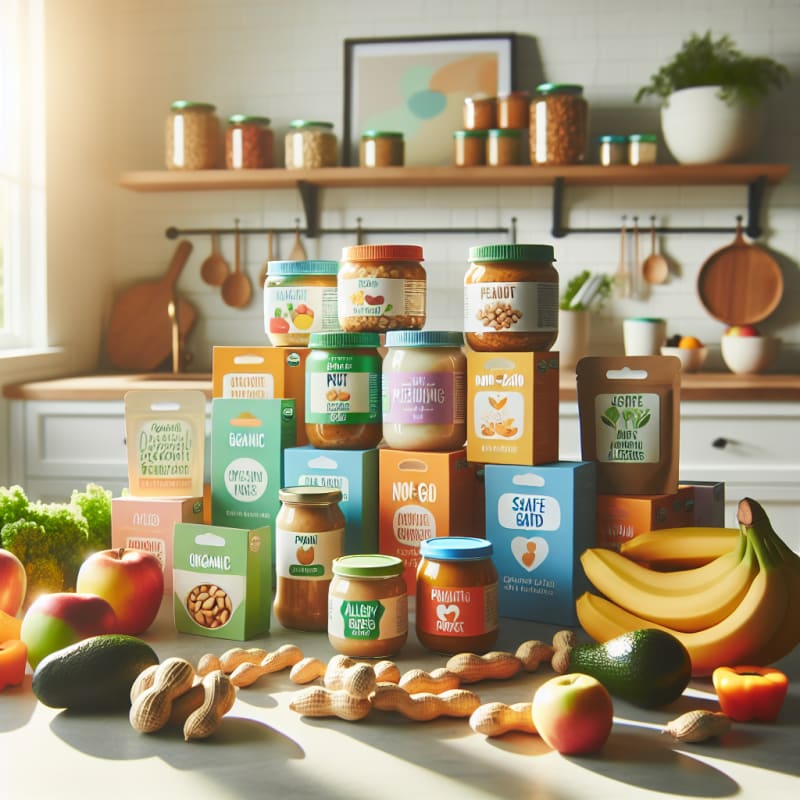How Feeding Babies Peanuts Earlier Is Paying Off: What Parents Need to Know
Understanding food ingredients is crucial for everyone, especially for parents and caregivers making decisions for infants. Recent research and evolving guidelines are changing how we approach food allergies—particularly peanut allergies. This article explores the latest evidence on early peanut introduction, practical tips for families, and how tools like Food Scan Genius can make food choices safer and smarter for everyone.
Why Early Peanut Introduction Matters
For years, parents were advised to avoid giving peanuts to babies, hoping to prevent allergies. However, landmark studies and new guidelines have flipped this advice, showing that introducing peanuts early can dramatically reduce the risk of developing peanut allergies.
- LEAP Study: The Learning Early About Peanut Allergy (LEAP) trial found that introducing peanuts to high-risk infants as early as 4-6 months reduced peanut allergy development by up to 81% [NEJM, 2015].
- Guideline Updates: The American Academy of Pediatrics (AAP) and the U.S. Food and Drug Administration (FDA) now recommend early peanut introduction for most infants [FDA, 2023].
Latest News: Early Peanut Feeding Is Working
According to a recent ConsumerAffairs article, new data from the UK and Australia show a significant drop in peanut allergies among children. The UK’s National Health Service reported a 77% decrease in peanut allergy rates after adopting early introduction guidelines [BBC News, 2024]. Similar trends are seen in Australia, where early introduction is now standard practice [Sydney Morning Herald, 2024].
| Country | Peanut Allergy Rate (Before) | Peanut Allergy Rate (After Early Introduction) |
|---|---|---|
| UK | 1.5% | 0.3% |
| Australia | 3.1% | 1.6% |
How to Safely Introduce Peanuts to Babies
- Consult Your Pediatrician: Especially if your baby has severe eczema or egg allergy.
- Start Early: Most guidelines recommend introducing peanuts between 4-6 months of age.
- Use Safe Forms: Offer smooth peanut butter thinned with water or breast milk—never whole peanuts or chunky spreads (choking hazard).
- Monitor Carefully: Watch for signs of allergic reaction (hives, vomiting, swelling, difficulty breathing) and seek immediate help if needed.
Food Safety Alerts and Dietary Trends: What Parents Should Know
Staying updated on food recalls, labeling changes, and ingredient reformulations is essential for families, especially those managing allergies or sensitivities. Recent FDA recalls have highlighted undeclared allergens in popular snacks, while new EU labeling laws require clearer disclosure of allergens. These changes help protect consumers but also mean parents need to stay vigilant.
- Emerging Trends: Plant-based and keto snacks are gaining popularity, but may contain unexpected allergens or cross-contamination risks.
- Brand Updates: Many brands are reformulating products for cleaner labels or sustainability, which can affect allergen content.
How Food Scan Genius Makes Allergy Management Easier
If you or your child has food allergies or sensitivities, the Food Scan Genius app can help. Simply scan any packaged food to instantly see allergen warnings, dietary compatibility (vegan, keto, gluten-free), and ingredient details. The app updates with the latest recall and labeling information, so you always have the facts at your fingertips.
User Testimonial: “As a mom of a child with multiple allergies, Food Scan Genius has been a lifesaver. I can shop with confidence and avoid hidden allergens. Highly recommend!” — Emily R., Atlanta
Frequently Asked Questions
Is it safe to give peanuts to my baby?
For most babies, yes—especially if you follow current guidelines and consult your pediatrician first. Early introduction has been shown to reduce the risk of peanut allergy [PubMed].
What if my baby already has eczema or another allergy?
Babies with severe eczema or egg allergy are at higher risk for peanut allergy. Talk to your doctor before introducing peanuts; they may recommend allergy testing first [NIAID Guidelines].
How can I keep up with food recalls and ingredient changes?
Use resources like the FDA recall database, subscribe to alerts, or use apps like Food Scan Genius for instant updates.
Does early peanut introduction prevent all allergies?
No, but it significantly reduces the risk of peanut allergy. It does not affect other food allergies [PubMed].
Takeaway: Smarter Food Choices for a Safer Future
The shift toward early peanut introduction is a powerful example of how science, policy, and technology can combine to improve public health. By staying informed about ingredient changes, food safety alerts, and evolving dietary guidelines, families can make safer, more confident food choices. Tools like Food Scan Genius empower everyone—whether you’re managing allergies, following a special diet, or simply want to know what’s in your food. Download Food Scan Genius today at scangeni.us and take control of your family’s food safety.
References
- Du Toit G, et al. (2015). Randomized Trial of Peanut Consumption in Infants at Risk for Peanut Allergy. NEJM.
- FDA: Early Introduction of Peanut Products
- PubMed: LEAP Study Outcomes
- NIAID Food Allergy Guidelines
- ConsumerAffairs: Feeding Babies Peanuts Earlier Is Paying Off
- BBC News: UK Peanut Allergy Drop
- Sydney Morning Herald: Australia Peanut Allergy Trends
- FDA Recalls & Safety Alerts
- EFSA: Allergen Labelling Updates





